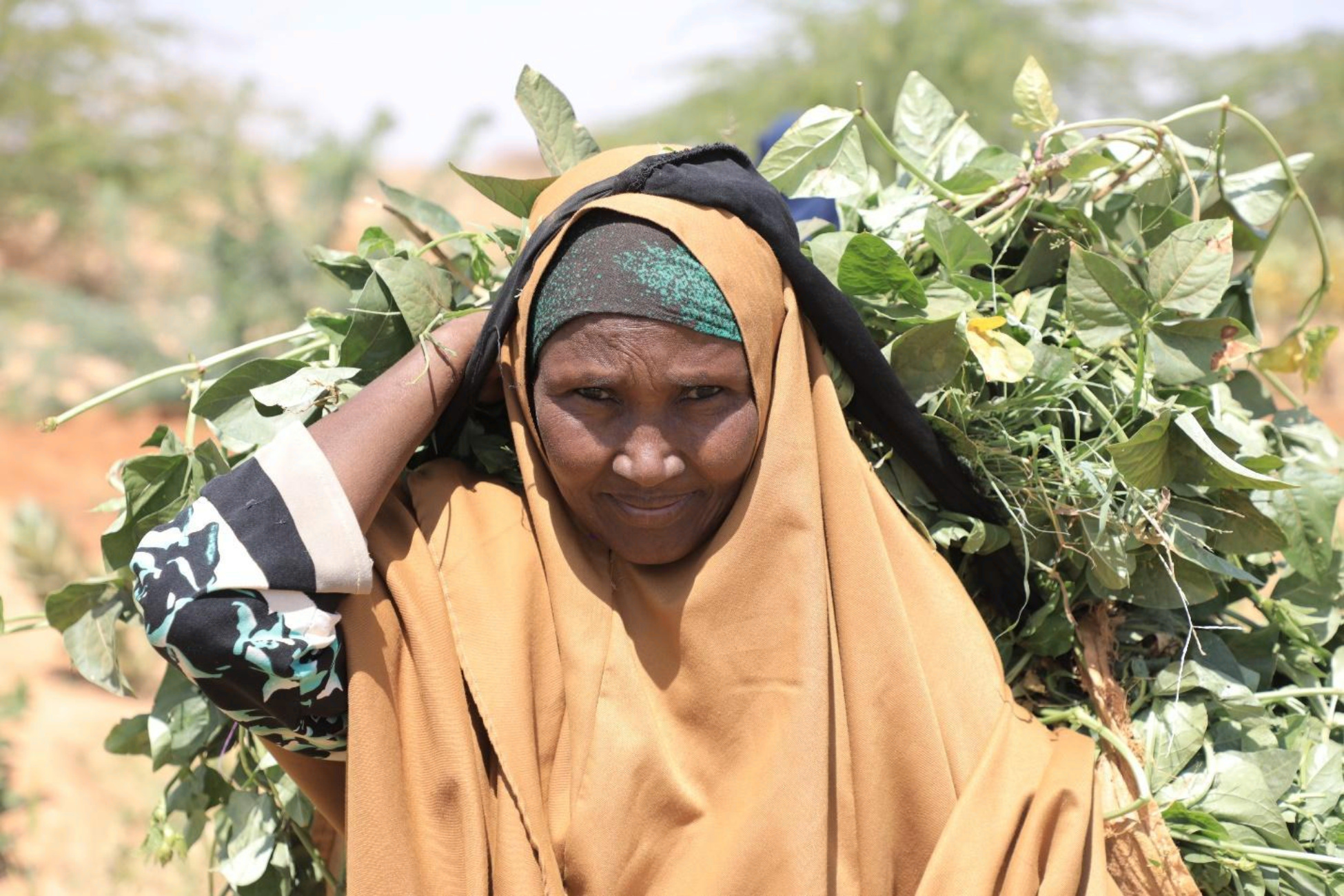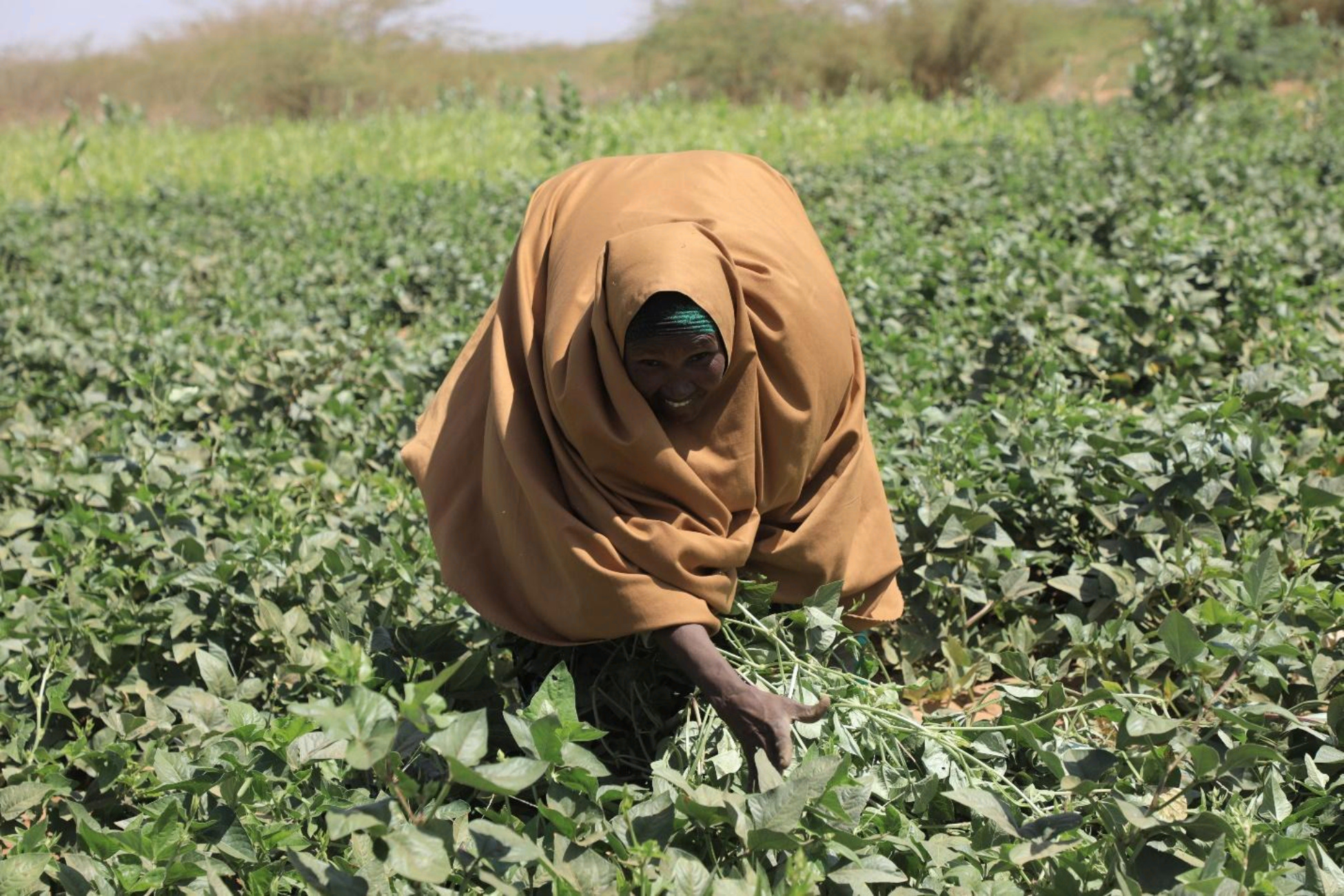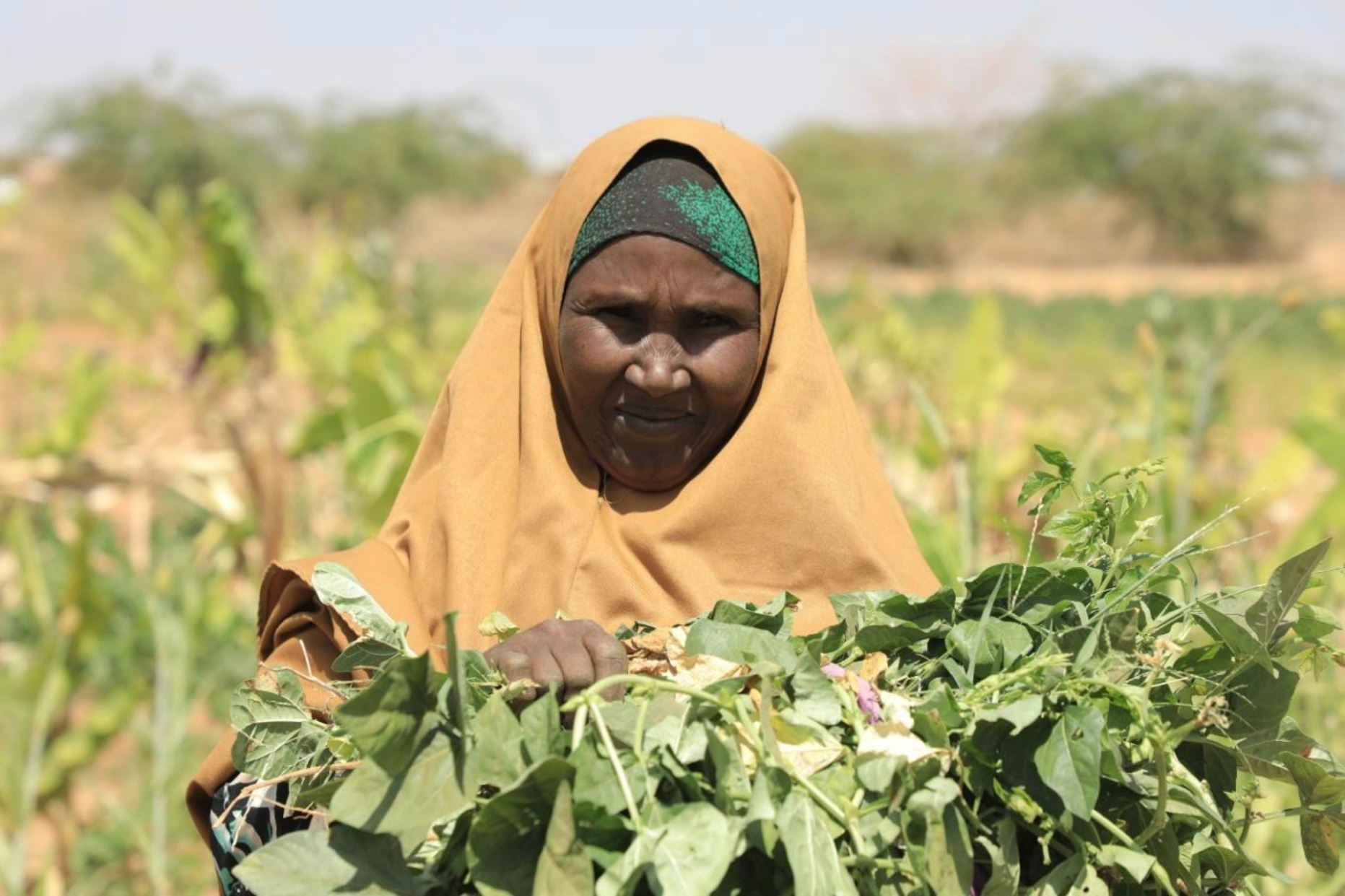Recovery and resilience building through agriculture

Following several seasons of failed rainfall in Somalia, the impact of locust invasion, the COVID-19 pandemic, and sporadic conflict, the cost of living has increased which has led to widespread food insecurity and displacement of thousands of Somalis to Internally Displaced Persons (IDP) camps. Women like Dhaqan are progressing towards recovery and resilience by engaging in farming activities aimed at improving their nutrition and food security.
After losing their livestock and livelihood sources five years ago, 42-year-old Dhaqan Abdullahi, and her family of eight (including six children, her husband and sister), together with hundreds of other families, fled their homes in Surtaag village about 40 kilometres from Luuq district in the hopes of finding humanitarian assistance in Kulmiye IDP camp.
Life in the IDP camp was not as easy as they had hoped. Before joining the project, the family relied on and survived on the little food rations provided by humanitarian aid organizations, which were insufficient. Three years later, Dhaqan was selected as one of the beneficiaries for a project funded by Development and Peace- Caritas Canada, implemented by Trócaire in partnership with Centre for Research and Integrated Development (CeRID). The project supported 100 women, including Dhaqan, with training on agricultural practices; provided them
with farm inputs including access to land, livelihood assets; and introduced them to locally managed Savings Groups.
Dhaqan, a pastoralist with no agricultural skills, was overjoyed to have been trained and is pleased with her progress.
“I compare the journey I have gone through to a child’s first steps when learning to walk. As I tried farming, I crawled, stood up and fell several times. Today, I am in a better position since acquiring agricultural skills and knowledge, and as a result, I am making a living out of it” says Dhaqan

“I have harvested four times since I joined the project, and I am determined to continue until I achieve my goals,” says Dhaqan.
“The income I have earned from the harvest has considerably assisted me in meeting the basic needs of my family, including putting food on the table, paying school fees for my children and even supporting some of my relatives from our extended family,” she said.
While she consumes some of the farm product (beans, and vegetables), she also sells some of it which earns her at least $200 per season. Along with the agricultural skills, Dhaqan acquired two goats as livelihood assets, which have since multiplied and increased to three. She can now earn money through the agricultural activities and the livelihood assets provided, as well as provide better and more nutritious meals for her family. She recently butchered a goat for her family.
Dhaqan claims that her reputation in society and with lending institutions has changed and improved because of the farming initiative. She can now borrow money and repay loans with confidence.
“Those with a source of income or investment capacity are often respected by the society. From experience, there is a significant difference when I had nothing and when I began selling my harvest. Now I can buy on credit from shops, and my kids are no longer sent home from Quranic school due to school fees arrears,” said Dhaqan.

Dhaqan has set her eyes on improving her farming project.
“My future seems bright, and I am excited to double my efforts to increase my harvest. As you can see, I now have cowpeas, sorghum, bananas and other crops. My objective is to grow this farming activity by being more innovative such as planting more fodder to feed my livestock and sell at the market too” she said.
According to the project manager, the project has been successful due to the dedication of women like Dhaqan.
“The women have shown lots of dedication. They started with minimal knowledge and have progressed to become very good in the field,” said Hussien Mohamed, CeRID project officer in Luuq.
